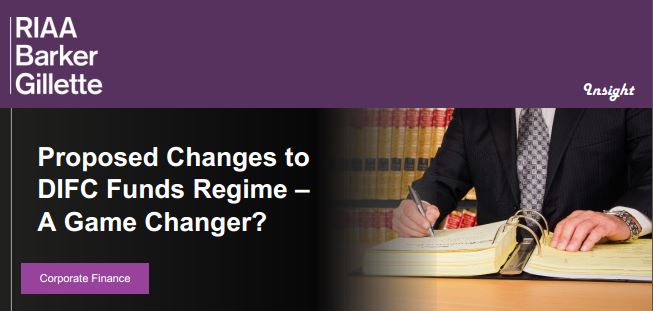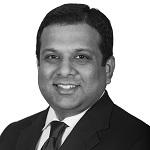
The Dubai Financial Services Authority (the “DFSA”) has recently proposed revisions to its collective investment funds regime in order to encourage the establishment of domestic fund vehicles within the Dubai International Financial Centre (the “DIFC”). At the moment, due to the relatively high cost of establishing a fund structure in the DIFC, most DIFC licensed fund managers choose other less expensive, and established offshore jurisdictions such as Luxembourg, Cayman Islands, the British Virgin Islands, Bermuda and Mauritius to set up their fund vehicles.
Under the present regime, the initial licensing and registration cost of setting up a limited partnership with a general partner is approximately six times more than the cost of setting up a similar entity in an offshore jurisdiction such as Cayman Islands (excluding legal fees). Where the fund vehicle is set up as an investment company, the cost of setting up is roughly eight times, still significantly higher than the cost of establishing a similar vehicle in an offshore jurisdiction. Leaving the costs on one side, fund vehicles were, until recently, treated much the same way as a regular DIFC company, adding additional visa expenses and office space lease costs to the calculus. Annual regulatory maintenance costs were also significantly higher, being several multiples of a comparable offshore entity.
It is not surprising then to see relatively few fund vehicles set up in the DIFC. The DFSA recently issued a consultation paper seeking comments on its proposal to bring its costs and practices in line with other jurisdictions. The DFSA has received comments on the consultation paper, and proposes to make various changes to the funds regime following completion of the consultation process. The DFSA proposes to reduce the cost of establishing a fund vehicle to approximately USD 6,500 for a GP/LP model and roughly USD 5,000 for an investment company structure. In addition, such an entity will not be required to lease office space or enter into a personnel sponsorship agreement with the DIFC. It is hoped that this will boost the number of funds established in the DIFC by creating a level playing field with the offshore jurisdictions in terms of the cost and ease of setting up. Annual maintenance costs would also be reduced to USD 4,000 per annum, which compares favourably with the offshore jurisdictions.
In recognition of the difficulty posed by the DFSA’s capital adequacy requirements for start-up fund managers, the DFSA also proposes to reduce the regulatory capital requirements for setting up fund management companies in the DIFC. The DFSA recently established the Qualified Investor Fund (QIF) regime which has been received favourably in the market; and this latest proposal can be seen as part of the ongoing effort by the DFSA to establish the DIFC as a cost competitive alternative. Under the present regime, fund managers require the higher of a minimum base capital of USD 500,000 or an expenditure based capital minimum equal to 13/52 weeks of the firm’s annual expenditure. The minimum base capital for managers of exempt funds and QIFs is now proposed to be reduced to the higher of USD 70,000 and 13/52 week annual expenditure.
The latest consultation paper has, not surprisingly, attracted considerable interest, especially from investors and fund managers based in South Asia and other GCC countries who are eager to use DIFC entities to invest in their home jurisdictions. Funds established in the DIFC can also benefit from the UAE’s extensive network of double tax treaties. To date, the UAE has signed double tax treaties with over 70 countries, including India and China, with an additional 30 treaties in the process of being negotiated.
Most funds in this region tend to be privately placed with a focus on high net worth individuals and institutional investors. The private equity based model using the QIF structure, along with a DIFC based fund is likely to receive a positive boost from these legal developments. This would also be a boon for funds focused on the GCC as regulators across the GCC are also discussing passporting schemes for funds based in these jurisdictions, which would be another positive step towards the promotion of domestic funds, with the DIFC’s strong regulatory regime making it the preferred jurisdiction for regional investments.
The proposed changes to the DIFC funds regime could potentially be a game changer for the establishment of funds in the region, and has the potential to rapidly increase the number of funds established in the DIFC.
